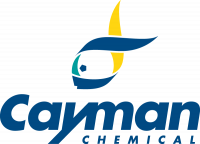Cookie preferences
This website uses cookies, which are necessary for the technical operation of the website and are always set. Other cookies, which increase the comfort when using this website, are used for direct advertising or to facilitate interaction with other websites and social networks, are only set with your consent.
Configuration
Technically required
These cookies are necessary for the basic functions of the shop.
"Allow all cookies" cookie
"Decline all cookies" cookie
CSRF token
Cookie preferences
Currency change
Customer-specific caching
FACT-Finder tracking
Individual prices
Selected shop
Session
Comfort functions
These cookies are used to make the shopping experience even more appealing, for example for the recognition of the visitor.
Note
Show the facebook fanpage in the right blod sidebar
Statistics & Tracking
Affiliate program
Conversion and usertracking via Google Tag Manager
Track device being used

| Item number | Size | Datasheet | Manual | SDS | Delivery time | Quantity | Price |
|---|---|---|---|---|---|---|---|
| Cay29824-50 | 50 g | - |
6 - 10 business days* |
49.00€
|
|||
| Cay29824-100 | 100 g | - |
6 - 10 business days* |
95.00€
|
If you have any questions, please use our Contact Form.
You can also order by e-mail: info@biomol.com
Larger quantity required? Request bulk
You can also order by e-mail: info@biomol.com
Larger quantity required? Request bulk
Estragole is a volatile compound that has been found in basil oil and has diverse biological... more
Product information "Estragole"
Estragole is a volatile compound that has been found in basil oil and has diverse biological activities. It induces mortality in 100% of adult C. capitata, B. dorsalis, and B. cucurbitae fruit flies exposed to wicks impregnated with estragole at concentrations greater than or equal to 2.5%. Estragole (60 mg/kg) reduces carrageenan-induced paw edema in mice. It increases survival in a mouse model of infection with the ME49 strain of T. gondii when administered at a dose of 100 mg/kg per day. Estragole (2.5 µmol/g, p.o., twice per week) increases the percentage of hepatoma-bearing mice and the average number of hepatomas per mouse in male, but not female, mice when administered prior to weaning.Formal Name: 1-methoxy-4-(2-propen-1-yl)-benzene. CAS Number: 140-67-0. Synonyms: 4-Allylanisole, Methyl Chavicol, NSC 404113. Molecular Formula: C10H12O. Formula Weight: 148.2. Purity: >98%. Formulation: (Request formulation change), A liquid. Solubility: DMF: 10 mg/ml, Ethanol: Partially soluble. lambdamax: 226, 278, 285 nm. SMILES: COC1=CC=C(CC=C)C=C1. InChi Code: InChI=1S/C10H12O/c1-3-4-9-5-7-10(11-2)8-6-9/h3,5-8H,1,4H2,2H3. InChi Key: ZFMSMUAANRJZFM-UHFFFAOYSA-N. Origin: Synthetic.
| Keywords: | 4-Allylanisole, Methyl Chavicol, NSC 404113, 1-methoxy-4-(2-propen-1-yl)-benzene |
| Supplier: | Cayman Chemical |
| Supplier-Nr: | 29824 |
Properties
| Application: | Bioactive monolignol, phenylpropanoid |
| MW: | 148.2 D |
| Formula: | C10H12O |
| Purity: | >98% |
| Format: | Liquid |
Database Information
| CAS : | 140-67-0| Matching products |
Handling & Safety
| Storage: | -20°C |
| Shipping: | -20°C (International: -20°C) |
| Signal Word: | Warning |
| GHS Hazard Pictograms: |
|
| H Phrases: | H302, H315, H317, H412, H227 |
| P Phrases: | P210, P261, P264, P270, P272, P273, P280, P321, P330, P301+P310, P302+P352, P332+P313, P333+P313, P362+P364, P370+P378, P403, P501 |
Caution
Our products are for laboratory research use only: Not for administration to humans!
Our products are for laboratory research use only: Not for administration to humans!
Information about the product reference will follow.
more
You will get a certificate here
Viewed

